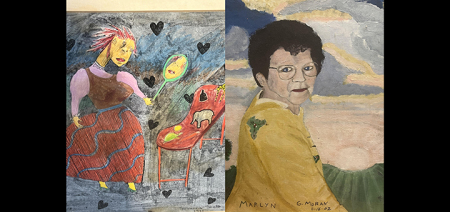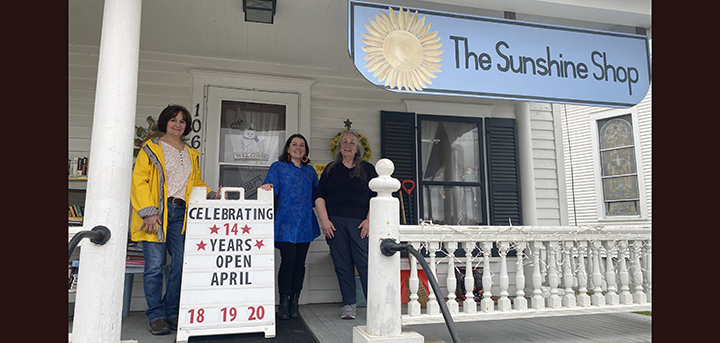The Happy Store Prelude
Published:
February 1st, 2019
By:
Shelly Reuben
(A fictional story)
This is the first in a series of stories about Clementine Fraile and her adventures in retail.
The first time Clementine Fraile walked into The Happy Store, it was under protest, although the only person to whom she was protesting was herself.
Over the years, she had heard about the home furnishing retailer. Most recently in advertisements on her computer screen (how had they gotten her email address?) displaying brightly colored merchandise, special offers, and limited-time-only coupons.
Nonetheless, Clementine fought the temptation to visit a store. Mostly because of its name. “The Happy Store.” What kind of an establishment would call itself something so blatantly … implausibly … atypically … what?
Corny? Trivial? Trite?
And how could a store be happy? People can be happy. Puppies can be happy. Occasions can be happy. And colors. Clementine supposed that colors could be happy, too. Bright yellows. Resplendent pinks. Soft blues. Cherry apple reds. Forest greens. Cheerful hues in jaunty patterns on dinnerware, vases, pillows, rugs, and wonderfully imaginative wreaths, in blissful contrast to the bleak grayness of November outside.
Probably, she snorted as she backed into a parking space at the mall, The Happy Store would follow in the tradition of Honest John Used Cars, being an enterprise where honesty means fraud, and lowest prices means “We’ll pick your pocket.”
Nonetheless, the Victorian-style teapots, cookie jar music boxes, tinkly glass ornaments, and small silver reindeer advertised on the Internet (she bet they would be “out of stock” or unavailable when she got there) were just so damn … charming.
And it wasn’t as if she was too busy to go shopping, Clementine being, as it were, “between jobs.” And, no. She had not been fired. She had merely come into conflict with her new employer.
Her old boss, a jolly people-hugger named Hyman Pease who called everybody – man and woman alike – “sweetheart” and brought in his wife’s homemade macaroons during the Passover season, had retired. It was something of a forced retirement after Ashley Spaatz, a new account executive who had double-majored in public relations and women’s studies, accused Hyman of sexual harassment. Apparently, he had hurled one too many “sweethearts” her way during a staff meeting, and had also touched her elbow when ushering her out the door.
Nobody, including the personnel manager, took the accusation seriously. And Hyman’s entire staff threatened to quit if he were brought up on charges.
However, none of that became necessary.
Hyman said, “I’m sixty-eight years old, which is much too young to put up with hypersensitive paper pushers and overactive imaginations.” So he handed in his resignation and sailed out of the company on a golden parachute to open a bookstore twenty miles northwest of the city.
His replacement, unfortunately, was that same Ashley Spaatz.
To Clementine Fraile’s sincere annoyance, her new boss began to introduce her to prospective clients as “our brilliant Afro-American Creative Director.”
Clementine’s heritage was a merry mélange of parents, grandparents, and great grandparents from Norway, Canada, Alabama, Arizona, the Philippines and Ireland. They’d had round eyes, almond eyes, blue eyes, green eyes, black eyes, black skin, tan skin, and ivory skin, and had evolved into generations of very pretty women and very homely men, most of whom also had dark brown skin, but none of whom, in recent memory, had come from a land mass south of Europe, east of North America, and west of Asia.
The first time that Ashley Spaatz had performed one of those introductions, Clementine held her tongue. But the following day, when she came upon the account executive among a group of co-workers, Clementine, enunciated, in the friendliest voice, “Oh. There’s my brilliant Aryan-American boss!”
After another week of this, Clementine decided that she was far too young (thirty-two years old) and far too talented (she’d won a Clio award for art-directing a yogurt commercial when she was twenty-six) to continue in an atmosphere more political than creative. So she said goodbye to her six-figure salary, quit her job, and went home.
Which was why, three days later and with no demands on her time, she found herself walking into The Happy Store, still skeptical about its name and claims, but having nowhere else that she particularly wanted to go.
Copyright © Shelly Reuben, 2019. Shelly Reuben’s books have been nominated for Edgar, Prometheus, and Falcon awards. For more about her writing, visit www.shellyreuben.com
Author: Shelly Reuben - More From This Author
Comments






